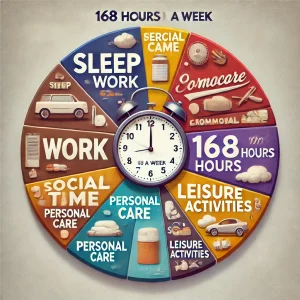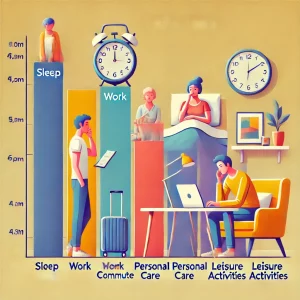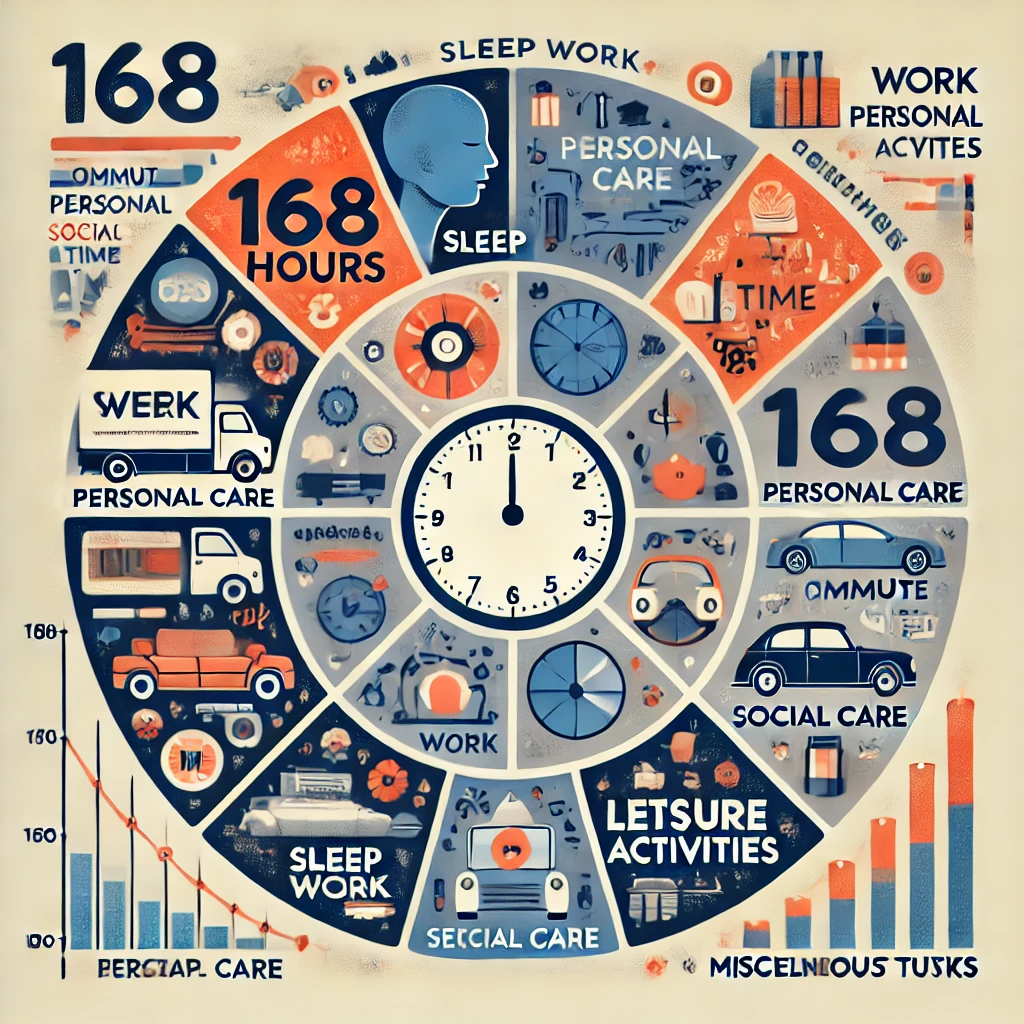How Many Hours Do We Really Have- A week, a familiar time frame, consists of seven days. It’s the basic unit of time we use to organize our schedules, set goals, and plan our activities. But have you ever wondered just how many hours we have in a week? The answer is 168 hours. However, this number often feels insufficient when we consider all the activities and obligations that fill our days. This article explores how these hours are typically spent and how much time we truly have at our disposal.
Key Takeaway
Maximizing Your Week
While there are 168 hours in a week, various essential and non-essential activities significantly reduce the free time available. Effective time management is crucial to maximize productivity and personal satisfaction. By understanding where our time goes, we can make more informed decisions about how to allocate our hours.
Practical Tips for Better Time Allocation
- Prioritize tasks and focus on high-impact activities.
- Set realistic goals and avoid overcommitting.
- Schedule downtime to recharge and maintain balance.
- Use tools like calendars and planners to stay organized.
Also Read: How Many Kids Does Nick Cannon Have? The Answer Might Surprise You
The Basics – 168 Hours

Understanding the Calculation
To understand the total number of hours in a week, we start with a simple calculation: there are 24 hours in a day, and a week has seven days. Therefore, 24 hours/day * 7 days/week equals 168 hours. This straightforward multiplication gives us a framework to explore how these hours are distributed across various activities.
Brief Comparison with Other Time Units
It’s helpful to compare this with other time units to grasp the magnitude of 168 hours. For instance, 168 hours equals 10,080 minutes or 604,800 seconds. While these large numbers might seem daunting, they emphasize the importance of each hour within our week.
Sleep – The Essential Time Taker

Importance of Sleep
Sleep is a crucial component of our daily lives, directly impacting our health and productivity. The average recommended amount of sleep for adults is between 7 to 9 hours per night.
Weekly Sleep Calculation
Using the minimum recommended amount, we calculate the weekly sleep as follows: 7 hours/night * 7 nights/week = 49 hours. This means that nearly a third of our week is dedicated to sleep, which is vital for maintaining our physical and mental well-being.
Discussion on the Importance of Sleep for Health and Productivity
Adequate sleep is essential for various bodily functions, including cognitive performance, mood regulation, and overall health. Lack of sleep can lead to numerous health issues, such as impaired memory, weakened immune response, and increased risk of chronic conditions. Thus, investing time in sleep is non-negotiable for leading a healthy and productive life.
Work and Commute
Work Hours
For many, a significant portion of the week is spent working. The standard full-time job requires about 40 hours per week. This forms the backbone of our professional lives and is often a fixed commitment.
Commute Time
In addition to work hours, commute time also needs to be considered. On average, people spend about an hour each day commuting to and from work. Over a five-day workweek, this amounts to 5 hours.
Total Work and Commute Time Calculation
Combining both, we get: 40 hours (work) + 5 hours (commute) = 45 hours per week. This figure underscores the substantial amount of time dedicated to professional commitments.
Daily Essentials and Personal Care
Essential Activities
Daily activities such as eating, hygiene, and basic personal care also consume a notable portion of our time. These are necessary for maintaining our well-being and personal health.
Estimated Daily and Weekly Totals
On average, these activities might take about 2 hours per day. Over a week, this totals to: 2 hours/day * 7 days/week = 14 hours. These hours, though often overlooked, are essential for our daily functioning.
Family and Social Time
Importance of Social Time
Spending time with family and friends is crucial for our emotional and psychological well-being. Social interactions help us relax, feel connected, and maintain a healthy work-life balance.
Average Time Dedicated to Social Activities per Week
On average, people might spend around 10-15 hours per week engaging in social activities. This includes family dinners, outings with friends, and other social commitments, highlighting the importance of nurturing personal relationships.
Leisure and Entertainment
Allocating Leisure Time
Leisure activities such as hobbies, watching TV, reading, and other forms of entertainment play a key role in relieving stress and providing enjoyment.
Weekly Average Estimation
People typically spend about 20-30 hours per week on leisure activities. This varies greatly depending on individual preferences and lifestyles but is crucial for a well-rounded life.
Miscellaneous Obligations
Unexpected and Routine Tasks
Life is unpredictable, and various errands, chores, and unforeseen tasks often arise. These activities, though sometimes seen as minor, add up over the week.
Estimation of Weekly Time Spent on These Activities
On average, miscellaneous obligations might take up around 5-10 hours per week. This includes tasks like grocery shopping, home maintenance, and other routine responsibilities.
The Final Breakdown
Summarizing Time Allocation
Summarizing the time dedicated to various activities provides a clearer picture of how our 168 hours are used:
- Sleep: 49 hours
- Work and Commute: 45 hours
- Daily Essentials and Personal Care: 14 hours
- Family and Social Time: 10-15 hours
- Leisure and Entertainment: 20-30 hours
- Miscellaneous Obligations: 5-10 hours
Calculate the Remaining Hours for Discretionary Use
Adding these up, the total time spent on these activities ranges from 143 to 163 hours. This leaves us with 5 to 25 hours of discretionary time each week, which can be used for additional activities or relaxation.
Reinforce the key points discussed in the article, emphasizing the importance of understanding time allocation to make the most of each week.
Encourage readers to analyze their own schedules, identify areas for improvement, and implement strategies to optimize their



